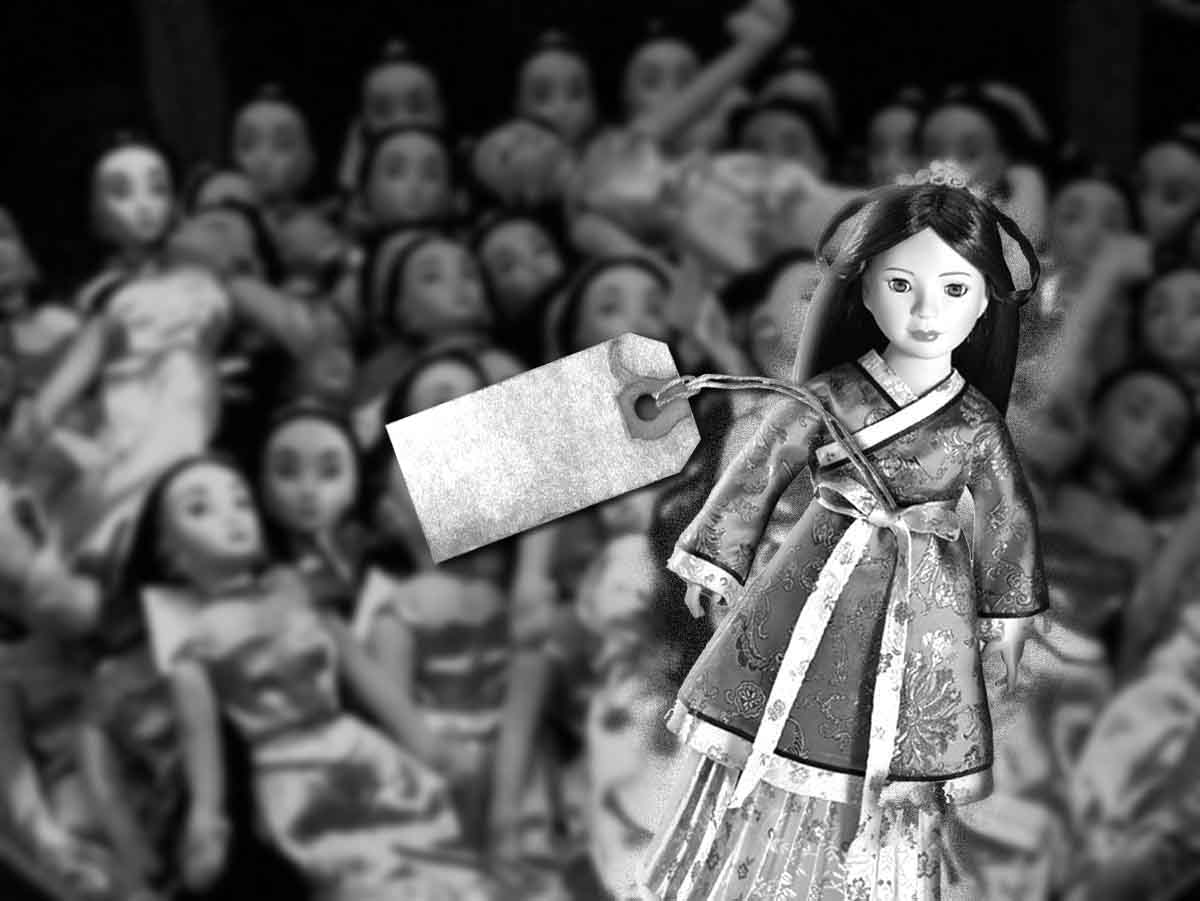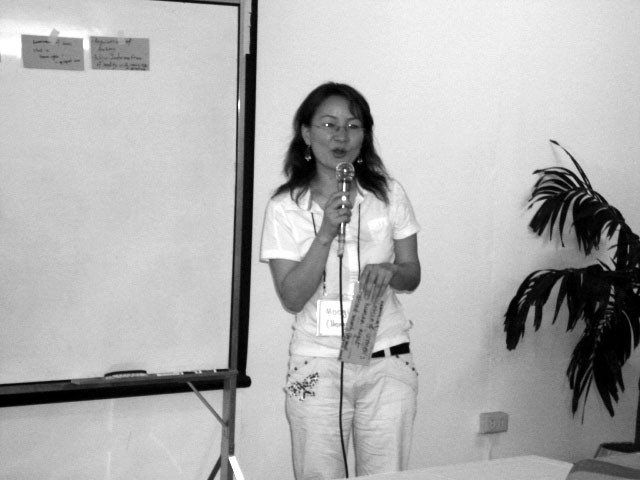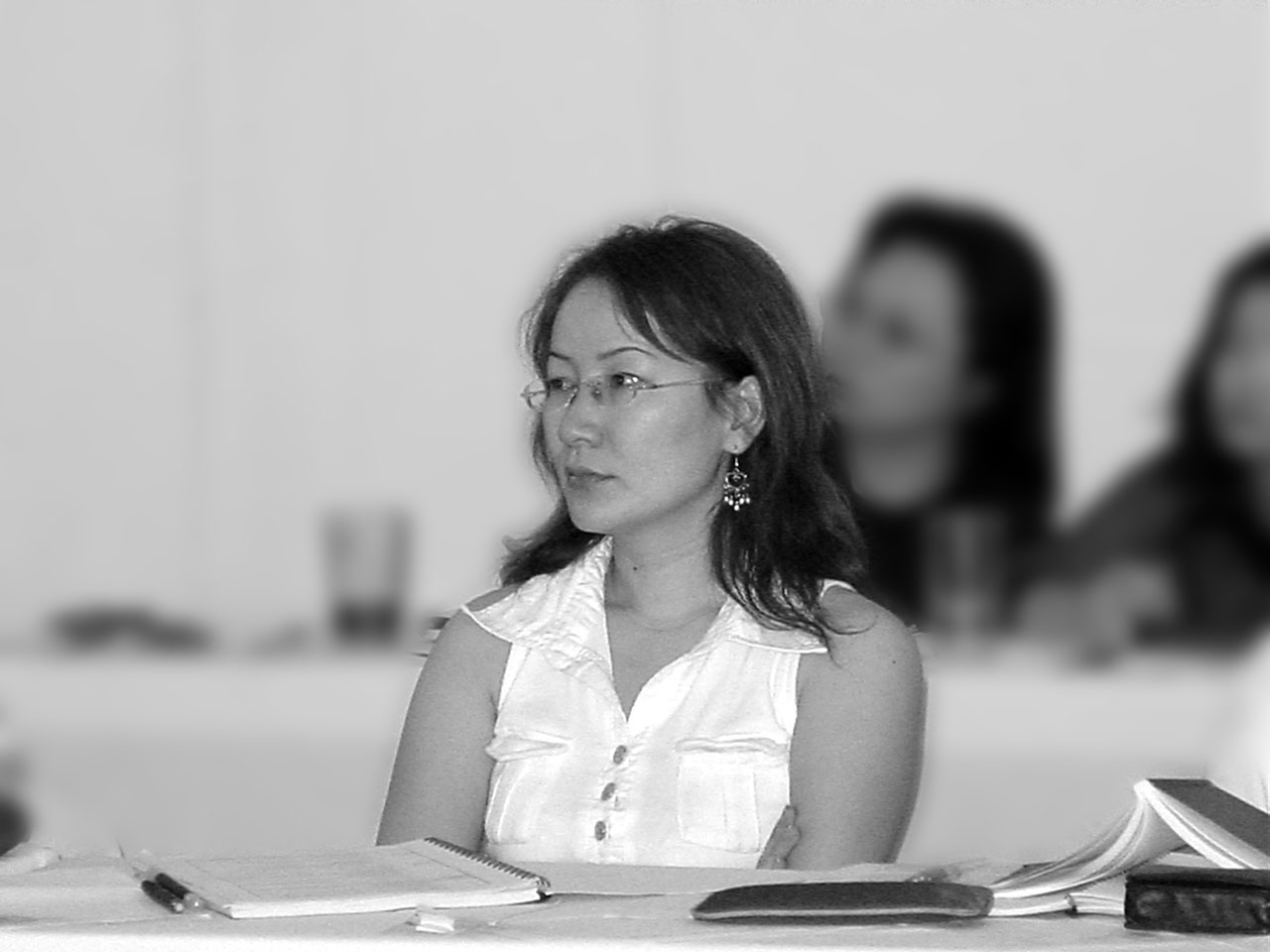Insecurity Among Mongolian Marriage Migrants
The transition to a market economy in Mongolia started in 1990 with a series of economic shocks that placed enormous pressure on all aspects of life. This was an unfamiliar phenomenon for Mongolians who had lived for generations with expectations of entitlements from the state to protect them. Women increasingly had to fill the gap left by the withdrawal of social services which in turn limited their capacity to take up income generating opportunities. Apace with the sudden loss of economic and social security came an increase in domestic violence, alcohol abuse, personal insecurity and family breakups in the wake of migration, both internal and external. 
In 1992, a new Constitution was adopted establishing rights that have since been incorporated into domestic laws. This constitution established the right to travel. Coupled with social and economic dislocation, this has resulted in a dramatic increase in Mongolian people’s mobility. Over the past decade, the number of Mongolians studying and working abroad has grown to an estimated 100,000 people. Similarly, there has been an increase in domestic migration from rural to urban areas. The general belief is that going abroad improves living standards as well as one’s quality of life. Unsurprisingly, marrying foreigners is increasingly becoming a common strategy used by Mongolian women to move and go abroad.
Trends in Marriage Migration
The most common way to marry a foreigner is through both broker agencies and individuals. The broker and brokered person connect through various ways including newspaper advertisements, TV chat, and internet information hotlines, as well as through friends and relatives.
The broker agency:
The broker agencies are the more popular means of marrying foreigners, and most broker agencies represent Korean broker agencies. The broker agency needs per mission from the Mongolian Ministry of Justice and Labour, but so far, only one broker agency has registered as a non-government organisation (NGO). Nevertheless, the broker agencies, though mostly Korean, also have ties in Japan, USA, Switzerland, and France.
The individuals:
There are individuals who arrange marriages with foreigners and work in much the same way as do the agencies. The main difference is that individuals do not have an office nor address. Among friends and relatives, for example, a woman who married a Korean was able subsequently to arrange marriage between her husband’s friends and her own friends and relatives. This form of marriage arrangement is harder to control because it is embedded in relationships.
Sample Case: A thirty-year old woman from the countryside had made several attempts to marry a foreigner before succeeding. She would tell her friends she was going abroad, leave for the city to “display” herself to potential husbands, and after several trips she was selected to be a wife. She now lives in Korea with her husband and is helping to arrange for friends and relatives to have a similar fate. Her sister also helps find women from the rural areas to become potential wives.
In the factory and work places:
Once a woman has found employment in the country of her choice, it is common for her to try and marry her boss. The purpose of this marriage is to be able to remain in the country and change one’s status to legal from an illegal work status.
The newspaper advertisement:
A typical advertisement in the newspaper will specify age, usually between 20-35, and describe the person and her status, e.g., single without a child, pleasant personality, thin and pretty, etc. The contact number is commonly a mobile one without any postal or street address.![]()
The TV chat:
Recently, local TV channels began producing TV chats. Mostly young people use the TV chat, sending SMS (Short Message Service) messages to one another while watching video clips. The broker agency and individuals have found this an efficient and effective way to run their businesses. Subsequently, the use of TV advertisements have increased and are still increasing.
Marriage migrant women face severe challenges as their marriages are founded on wrong and deceitful information and subsequently flounder.
The information hotline:
Information hotlines are becoming more commonplace. Mongolia has 4-digit numbers that are more expensive but easier to remember (e.g., 1904). Four-digit hotlines have increased, which shows a concerted effort to broaden the reach of arranged international marriages. The broker agencies are certainly utilising the marketing power of these hotlines.
Face to Face with Human Insecurity
There is no guarantee to safety in marriage migration because most broker agencies and individuals do not have agreements with the other country’s broker agencies. Many move abroad expecting their new husbands to protect them. Broker agencies and individuals market their services only by showing photos of couples and how they live happily after using marriage brokers. To prove it, brokers show copies of the migrant women’s visas.
There are no agreements in place with the husbands or the broker agencies and the women are not informed enough to require such agreements. At the same time, women do not have a sufficient knowledge about their future husbands nor aware of any criminal record their husbands may have. There is no data on how many women returned and how many women have divorced. Neither is there information regarding the number of women that have complained to the broker agencies and how such issues were resolved. There is no documented feedback from the women at all.
Issues and Necessary Actions
Marriage migration raises a number of complex issues. There is the issue of divorce, of children orphaned or traumatised by the separation. There is the issue of crime, with migrants at high risk of being trafficked, enduring conditions of slavery and even disappearances. Marriage migrant women face severe challenges as their marriages are founded on wrong and deceitful information and subsequently flounder. Then there are differences in culture, age, language, and education. During their stay in the country of destination, often they suffer from lack of information, abuse and domestic violence. There is the constant battle against discrimination, loneliness and hostility.
A case in point involves a Mongolian married to a Swiss who attempted to leave the country with her child. She was arrested at the airport after her husband filed a police report charging her with kidnapping the child.
It is difficult to find specific data and information on cases although we can cite a few statistics. The marriage migration data from Centre Citizens’ Registration for the last 5 years, for example, show that the number of people who married “foreigners” is more than 2500, most of them women. The marriage migration data at the Wedding Ceremony Palace in 2004 show that 500 couples celebrated their wedding there, and that 80 out of the 500 couples married “foreigners.” More specific reports on marriage migrants in Mongolia are still forthcoming.
What makes things worse for women is the attitude of law enforcement authorities and society in general that migrant women enter into private agreements with the men they marry and therefore cannot be considered victims.
When women finally summon the courage to divorce or escape from abusive relationships, most of them do not want to return to their home countries for lack of money; they are also overwhelmed with feelings of failure and shame. So far, no support system has been created to help and rehabilitate these women, both on the state and NGO levels.
Clearly, the marriage migrant situation calls for an amendment of the Mongolian Family Law, Advertisement Law and National Plan of Action on Commercial Sexual Exploitation and Trafficking and other laws to regulate marriage through broker agencies. There is a need to control broker agencies and advertising, both by the State and NGOs. 
Finally, Mongolians need to learn from experiences in other countries and work together as a network with receiving countries. And it needs special rehabilitation services to victims of marriage migration and protection of rights of cross-cultural kids.
Conclusion
If the current marriage migration continues to increase, it will impact on the state of insecurity of marriage migrants in Mongolia. If people see the marriage migration data and compare the number with one of other countries, it might seem that the number is small. But considering the small population of Mongolia, this is not small number at all.





 The
The 
 Isis Resource Center holds one of the largest feminist collections of materials in the Global South. With 40 years of publication experience, Isis holds a vast collection.
Isis Resource Center holds one of the largest feminist collections of materials in the Global South. With 40 years of publication experience, Isis holds a vast collection.